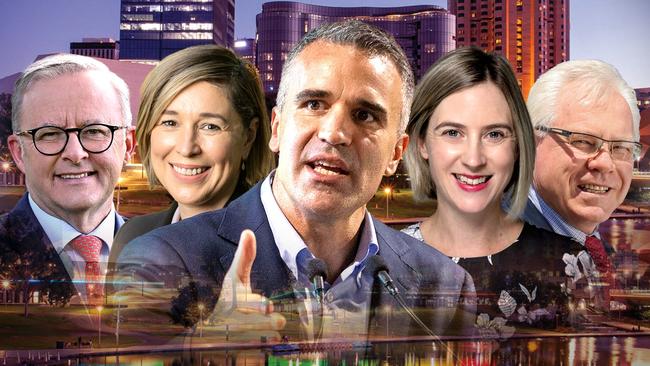Building a Bigger, Better SA: Watch the full replay of the Future SA 2024 forum
The state’s leading strategic minds say SA’s future is bright if we fearlessly pursue our economic opportunities. Watch the full replay of the Future SA forum here.
South Australia’s movers and shakers, as well as Prime Minister Anthony Albanese, have gathered in Adelaide to spruik the wealth of opportunity the state has.
Political and business leaders will address The Advertiser’s Future SA forum at SkyCity from noon, talking about the levers the state can pull to build a more prosperous future.
Mr Albanese and Premier Peter Malinauskas will lead the addresses at the forum.
It also includes panel discussions with RAA chief executive Nick Reade and Mitsubishi Motors Australia chief executive Shaun Westcott; and Walker Corporation chief executive David Gallant and ECH chief executive Claire Scapinello.
Additional panels feature Adelaide Airport managing director Brenton Cox and StudyAdelaide chief executive Jane Johnston; and Santos executive vice president Brett Darley and BHP chief operating officer Edgar Basto.

RECAP ALL THE HIGHLIGHTS FROM THE FORUM VIA OUR BLOG BELOW





